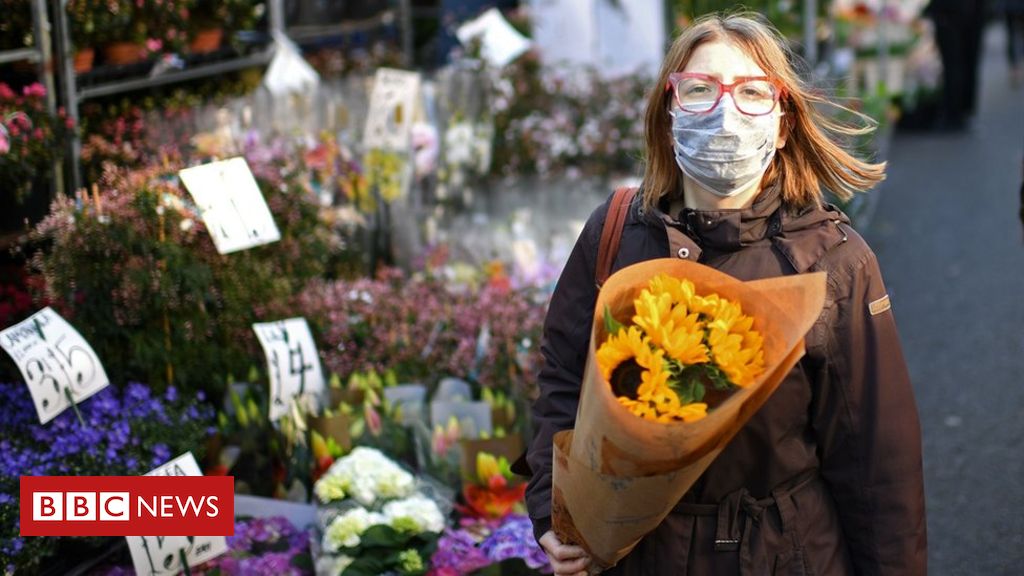
Loss of smell or taste have been added to the UK’s list of coronavirus symptoms that people should look out for and self-isolate with.
Until now, only a fever and cough were triggers for people to shut themselves away in self-isolation in case they had and could spread the infection.
Ear, nose and throat doctors had been warning for weeks that more symptoms should be included.
Scientific advisers told the government to update the advice.
If you or someone you live with has any of these symptoms – a new, continuous cough, fever or loss of smell or taste (also called anosmia) – the advice is stay at home for seven days to stop the risk of giving coronavirus to others.
Cough and loss of smell or taste can persist after seven days. You do not need to keep self-isolating after seven days, unless you have a high temperature or are unwell, says the advice.
Loss of smell and taste may still be signs of other respiratory infections, such as the common cold. Experts say fever and cough remain important symptoms of coronavirus to look out for.
Using an app, researchers at King’s College London have gathered symptom information from over 1.5m people in the UK who believe they might have had coronavirus.
They say there are even more symptoms – such as tiredness and stomach pain or diarrhoea – that could be included as possible coronavirus symptoms.
Some other countries and the World Health Organization are already citing them.
Lead researcher Prof Tim Spector said: “We list about 14 symptoms which we know are related to having a positive swab test.
“These are not being picked up by the NHS. This country is missing them all and not only underestimating cases but also putting people at risk and continuing the epidemic.
“There’s no point telling people to be alert if they don’t know the symptoms.”
Prof Nirmal Kumar from ENT UK, the body that represents ear, nose and throat doctors, said the change was “better late than never”.
“We had been asking for this almost eight weeks ago. The delay has not helped at all. Many, many people have contacted us with concerns about loss of smell and taste and whether these are symptoms they should act upon.”
England’s deputy chief medical officer, Prof Jonathan Van-Tam said it was important to update advice at the right time “when we think it’s going to make a difference moving forwards to how we pick up cases”.
Downing Street said the UK’s chief medical officers were continually reviewing symptoms of the virus based on advice from experts.
“They are now confident that encouraging self-isolation with a loss of sense of smell or taste will pick up slightly more cases and help to further control the spread of the virus,” the prime minister’s official spokesman said.
The World Health Organization says along with the most common symptoms of fever, cough and tiredness, people may have:
- aches and pains
- sore throat
- diarrhoea
- conjunctivitis (red eye)
- headache
- loss of taste or smell
- a rash on skin, or discolouration of fingers or toes
On Monday, the Department for Health and Social Care announced 160 new deaths of people who had tested positive for Covid-19.
The overall UK death toll remains the highest in Europe, and was at 34,796 as of 17:00 BST on Sunday.
- RESTRICTION CHANGES: What will happen next?
- LOCKDOWN SHOWDOWN: Four households go head to head
In other developments:
- The testing regime across the UK was expanded to include everyone aged five and over with symptoms
- First Minister Nicola Sturgeon says lockdown measures in Scotland could begin to be lifted from 28 May
- Some 38% of care homes in England have reported outbreaks of the virus as of Sunday, Downing Street says
- Security guards trained in crowd control have been put on duty at some major railway stations following the easing of coronavirus restrictions in England
- Children from wealthier families are spending more time each day studying during lockdown compared with the poorest, according to new research
- Proposed laws for a post-Brexit immigration system will appear before MPs later. The government says the system promotes a “high skill” economy but critics say the pandemic has changed public attitudes towards workers considered “unskilled”
- More than half a million people have accessed online training that aims to prevent suicide in the last three weeks alone, a charity has said
- A number of European countries are further easing their lockdown restrictions on Monday
